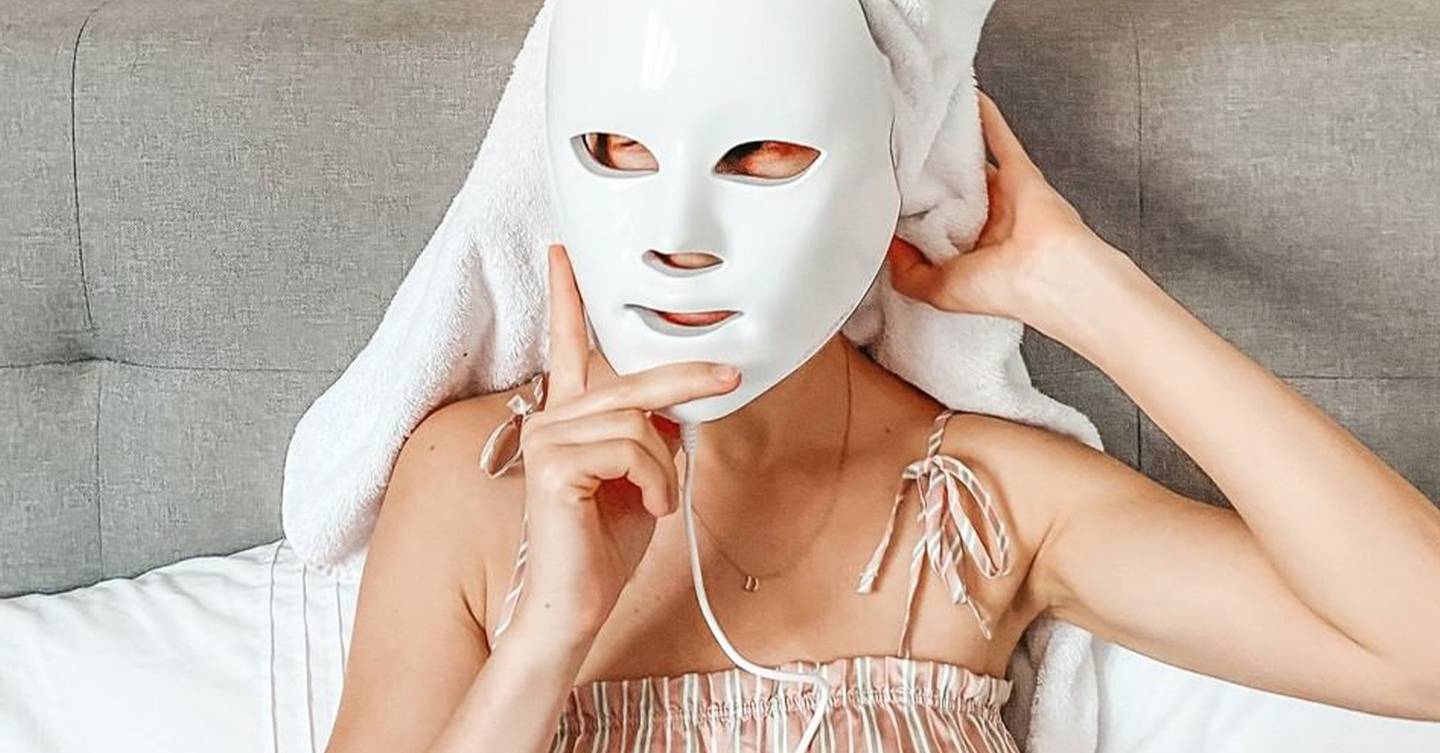Inspirational and aspirational beauty is all well and good, but after a year in which we’ve had to develop more autonomy over our beauty routines – and forgo our favourite clinic treatments – we’re looking for skincare innovations that deliver cold-hard results.
For hardcore skintellectuals with their finger on the pulse, LED masks and skin-tightening devices are nothing new, but for the average beauty nut, they’re beginning to make a lot more sense. Brands like Theragun have suddenly boomed in popularity to fill in for the sports massages that we’re unable to access. Likewise, high-performance, clinically approved facial devices offer a service above and beyond the regular tools, like gua shas and face rollers, that have been making their way into our beauty routines.
Alongside having to halt our pro treatments, we’ve simultaneously developed a keener interest in our skincare regimens. Google searches have shown the spike that ‘skincare’ has seen over the last year, as lockdown has forced us to use our at-home recreational time to our advantage. We’ve upped our tech game in numerous areas of our home life (looking at you, new coffee maker and sound system), it follows that beauty should get the same treatment.
“We saw a clear pivot in the audience engagement towards practical beauty advice that they could use at home,” explained Newby Hands, Global Beauty Director at Net-A-Porter, in the brand’s Annual Beauty Conversation. Having analysed the beauty trends and customer habits that the platform had seen over the past 12 months, one area in particular, has seen huge growth: beauty tech.
“Devices have been a growing market for us, and this obviously really took off with everyone being at home and salons closing,” Newby reveals. While face rollers and massagers remain popular, there’s been a notable shift from holistic tools to high-tech gadgets. “The huge growth has been in high-tech devices,” she confirms, noting that electronic devices are up by almost half compared to last year. “It seems that while previously, women had become their own facialist, now they’re fast becoming their own clinician.”
It’s a trend that’s being seen across the board. “Lockdown has changed people’s perception of beauty treatment devices,” agrees Alexia Inge, co-founder and co-CEO of Cult Beauty. In particular, it’s made us reconsider how effective they are and how much we’re willing to pay for them.
“This forced evolution of the at-home salon has created a market for £400-£2,000 devices,” says Alexia. Gadgets like Theragun, DRx Spectralite FaceWare Pro and the Deesse Mask have all seen a marked increase. And over at Net-A-Porter, the retailers best-selling tool – Angela Caglia’s £1,750 LED Wireless Mask – has sold out. Multiple times.

